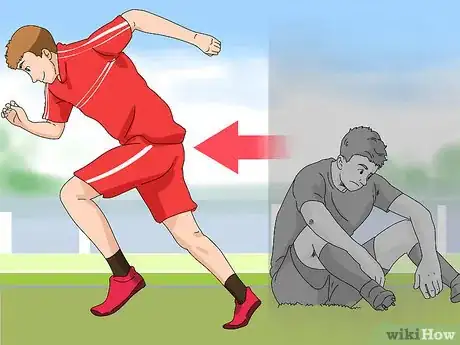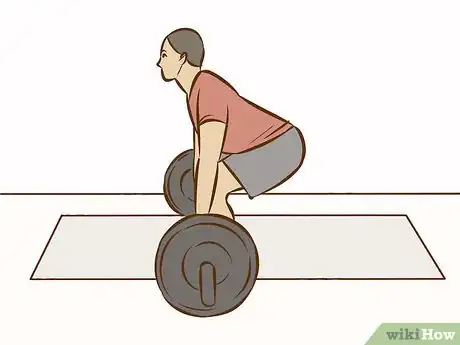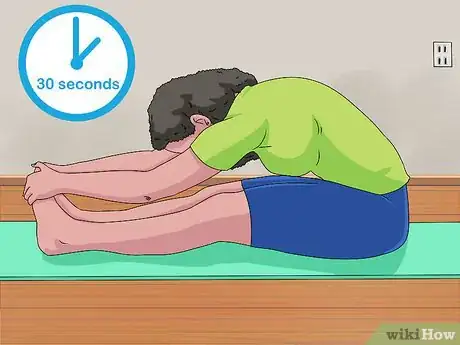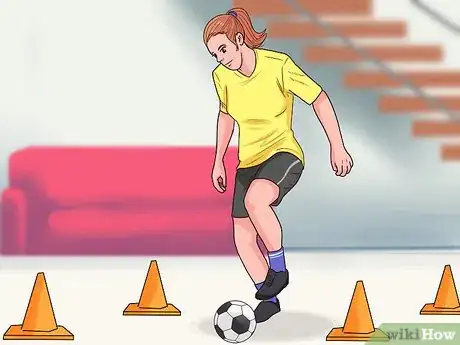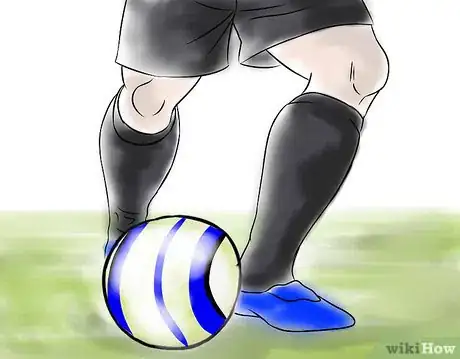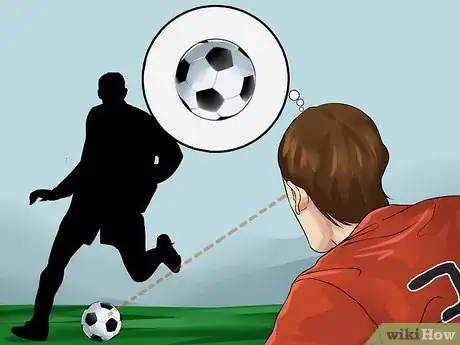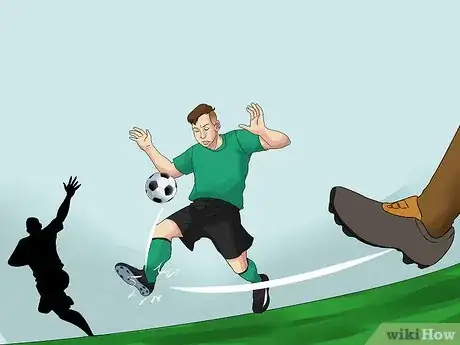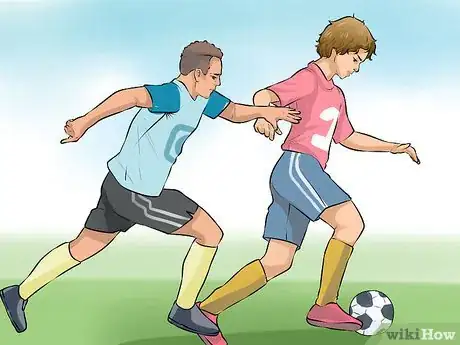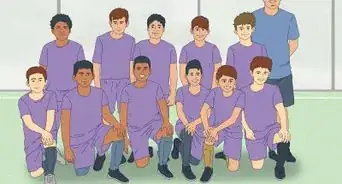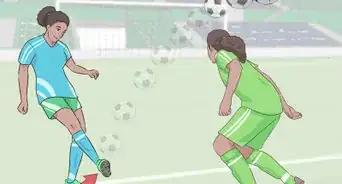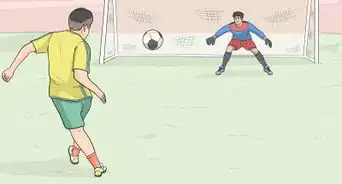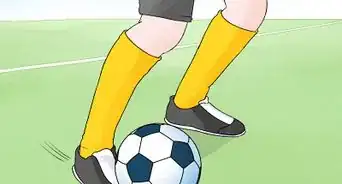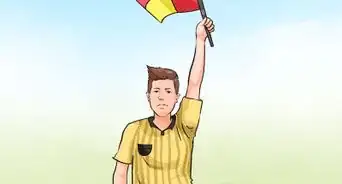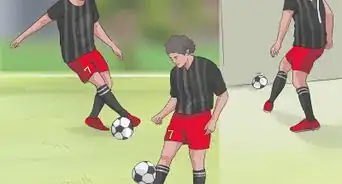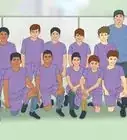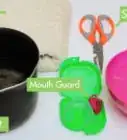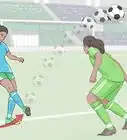X
wikiHow is a “wiki,” similar to Wikipedia, which means that many of our articles are co-written by multiple authors. To create this article, volunteer authors worked to edit and improve it over time.
wikiHow marks an article as reader-approved once it receives enough positive feedback. In this case, 98% of readers who voted found the article helpful, earning it our reader-approved status.
This article has been viewed 18,454 times.
Learn more...
Want to know how to be a good soccer full back? Want to make forward runs? Want to be a rock at the back? Then this guide is just for you. This wikiHow will help you excel in the full back position.
Steps
Part 1
Part 1 of 4:
Improving Your Physical Condition
-
1Practice running. Stamina is one of the most key requirements to be a good fullback. In a game of soccer you will be physically active for the entire game, so being able to run for a long time is vital.
- Try to practice running try to jog for an interval (whatever you are comfortable with at the start); then run for an interval and repeat it for a time limit you are comfortable with. As you get more used to running increase your intervals of running and slowly lower your jogging interval.
-
2Train at the gym. Working out at the gym or even working out outside is very important to be a good soccer player. You will also feel better after games and avoid injuries.
- Check out How to Get Fit for Soccer for all the information regarding being fit for soccer.
Advertisement -
3Play scrimmages. These will help you improve your stamina in general in ways drills can't. Just get a group of friends together and play a match for as long as you can.
Advertisement
Part 2
Part 2 of 4:
Establishing Pre-Game Routines
-
1Study your opposition. It is very important to study your opponent's strengths and weaknesses. This will allow you to play in a way to exploit their weaknesses. Watch game film if you can.
- Look for what his weak foot is?
- What locations does he run to?
- How much does he track back?
- Does he shoot a lot?
- Does he pass a lot?
-
2Do light warm-ups. Never do large amounts of reps during your warm-ups. It will only make you tired faster. Do enough to get your body warmed up.
-
3Communicate with your winger. They will be working with you throughout the game so you need to let them know what to do on the defensive end like, who to guard, do they need to help you double team somebody and let them tell you what to do on the offensive end like, when you need to move up and make an overlapping run.
Advertisement
Part 3
Part 3 of 4:
Practicing Techniques
-
1Practice crosses. These are very useful when your teammates are already inside the penalty box. Set up cones or even have a friend and just cross it to him to practice these. Start with standing cross then move to moving crosses.
- Master out/in swinging crosses. These are more versatile than normal crosses as you can execute them earlier and will be a nuisance for the goalkeeper to deal with. To do these, just try to curve the ball when you are crossing it.
- Check out How to Curve a Soccer Ball.
-
2Practice dribbling drills.
- Cone drills. Set up a few cones and try to dribble through them using both inside and outside of your foot and also practice with your weak foot. They will help you improve your dribbling technique.
- Be confident in 1 v 1 dribbling. To practice this, just play 1 vs 1 against a friend or teammate and try to retain possession as long as possible. This will help you improve your ability to retain the ball.
- Use both inside and outside of your feet while dribbling. This unlocks much wider range of motion with a soccer ball.
- Check out How to Develop Good Soccer Dribbling Skills.
-
3Master passing with both feet. This will allow you to be more capable in 'give n goes' during a game and in general open more options to pass.
- Do drills to help improve both your short and long passes.
- Rondo is an effective short passing drill. It will teach you how to pass the ball in high pressure situations. In it you are inside a circle or square whatever you like and pass the ball among you and your friends while a person tries to steal the ball. It is almost like monkey in the middle.
- Check out How to Pass a Soccer Ball.
Advertisement
Part 4
Part 4 of 4:
Excelling During the Game
-
1Think one step ahead. A defender is always at a disadvantage when a forward runs at him/her. They don't know exactly what the forward will do. However, if you did your pre-game routine and studied your opponent, then you would have good knowledge on how he will play so based on that think ahead.
-
2Close passing lanes. Knowing how to do this will frustrate your opponent. Always take pictures in your mind of every players movement and based on that make your own movement to remove passing lanes and the press when time is right.
-
3Time your tackles. Tackling is an art. You need to look for an opportunity where you are certain you will successfully get the ball. Reckless tackling will get you booked and could hurt your opponent.
- Check out How to Improve Soccer Tackling Skills for better understanding of when and how to make a tackle.
-
4Make tactical fouls when you need them. Tactical fouls are always looked down upon but they are very useful. When you see that there is a counter attack happening and players are out of position make a tactical foul like shirt pulling to stop or holding. They will get you a yellow card but will probably stop a goal.
-
5Position yourself correctly. Following your formation and marking the opposition can be crucial to preventing goals. Maintaining your position is more helpful then people realise and can often be overlooked. It may also involve you in the play more.
Advertisement
Warnings
- Don't make a tactical foul when you are the last man. You will be sent off.⧼thumbs_response⧽
- Don't make a tactical foul when already on a yellow card. You will be sent off.⧼thumbs_response⧽
Advertisement
About This Article
Advertisement
